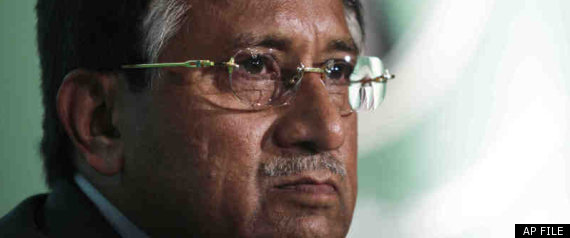Step in the right direction. 
US cuts aid to Pakistan military

US cuts aid to Pakistan military | The Australian

US cuts aid to Pakistan military

RELATIONS between the US and Pakistan hit a new low yesterday after the White House announced that it was withdrawing $800 million ($A748 million) of cash and equipment to the country's military.
William Daley, President Obama's Chief of Staff, said that Washington had decided to withhold more than a third of the more than $2 billion annual package in protest at Pakistan's decision to cut back on counter-terrorism co-operation after Osama bin Laden's killing.
The decision sends an explicit message to Islamabad: if it wants US aid, it will be on American terms. The shipments of rifles, ammunition and body armour were intended for Pakistani troops being trained by American officers who Islamabad ordered out of the country in anger at the US Special Forces' raid on bin Laden's hiding place.
Other shipments of radios, night-vision goggles and helicopter spare parts are being halted because Pakistan has refused visas to the American personnel required to set up and operate the equipment.
In what may be the biggest blow, Washington is withholding dollars $300m in cash intended to reimburse Pakistan for some of the costs of deploying more than 100,000 soldiers along the Afghan border.
The move comes amid serious questions over Islamabad's commitment to impeding the flow of militants fighting Nato troops inside Afghanistan.
Washington has long been infuriated by Islamabad's "double game" in which leaders have been happy to accept aid intended for the fight against militants linked to al-Qaeda, while elements of its military and intelligence establishment give them secret support.
American officials began to confront Islamabad with evidence of this duplicity in the last months of George W. Bush's presidency. Members of the Obama Administration have kept up the pressure and relations became even more strained with the raid on Osama bin Laden's compound.
The discovery that the al-Qaeda leader had been hiding for at least five years in Abbottabad, a garrison town at the heart of the country's military infrastructure, sparked a new round of accusations about Pakistani complicity with al-Qaeda. The Pentagon said that it had not sought Pakistani permission for the raid because it did not believe that Islamabad could be trusted.
Twice since then senior US officials have confronted Pakistani generals with evidence that insurgents were warned of impeding American strikes.
In an unprecedented statement last week, Admiral Mike Mullen, the Joint Chief of Staff, accused Pakistan's military spy agency of the murder of a Pakistani journalist who had uncovered evidence linking al-Qaeda with the country's navy.
US cuts aid to Pakistan military | The Australian


